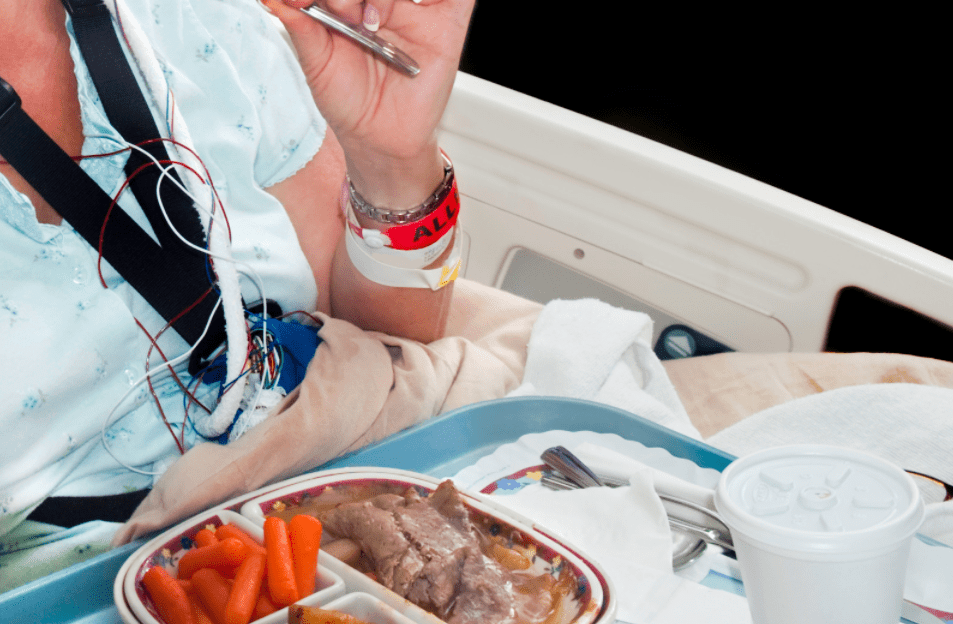Eating hospital meals results in a measurable decline in health, according to a report from the Flemish television network VTM, which paints a devastating picture of nutritional neglect in Belgian health care.
VTM conducted a study in which half of participants were given freshly prepared meals and the other half hospital food, then conducted a series of tests to measure health outcomes. They shared their reporting with HLN.
The ten people, including the study’s presenter, who had eaten the hospital food suffered from reduced appetite and listlessness after just two weeks. While lab tests showed no differences in their cholesterol values, they lost an average of 1.5 kg, most of which was a loss of muscle mass, sometimes accompanied by an increase in body fat.
Iron levels dropped dramatically, so much so that had they continued to eat hospital food for six weeks, it could have resulted in anaemia. “This is shocking,” nutrition expert Bart Geurden of the University of Antwerp told HLN.
“Here it appears that food with too few correct proteins spontaneously leads to muscle breakdown in healthy test subjects. The consequences are even greater in people who are ill. If you have to recover from an operation, your body needs more vitamins, proteins and iron. We know from studies that patients who get fresh meals also suffer less from infections.”
He said that measurements of people over 65 showed that 51 percent of them already had a nutritional problem when they entered a hospital, but that three quarters of those patients deteriorated even further once admitted.
“Most Belgian hospitals have outsourced their catering to the Sodexos of this world for economic reasons,” Geurden said, referring to a large French food services and facilities management company that also operates in Belgium.
“I am a nurse by training. When I was a trainee some 40 years ago, we could fry an egg and find some bread for a hungry patient. Now you can't ask for anything. The result: 30 to 40 percent of patients in Belgian hospitals are malnourished.”
University of Gent professor Gijs Du Lalaing had already complained that the food served in nursing homes caused deficiencies in micronutrients like zinc and selenium, which are essential for an immune system to fight infections such as the coronavirus.
Geurden agreed, saying that the figures regarding malnourishment are even worse than those of hospitals, with 50 to 60 percent of residents suffering from malnutrition.
“Dieticians then have to solve nutritional problems that are organised from the kitchen,” he said. “And they quickly reach for the protein drinks that the industry hands them. But patients don't like it. My own father used to sneak them down the toilet behind the backs of the nurses.”
AZ Zeno, which operates hospitals in Knokke-Heist, Blankenberge and Maldegem, believes things can be done differently. Catering manager Pieter De Smet provides 100 percent fresh food using the same budget as other hospitals, and says the key lies in creativity.
“We don't throw anything in the bin,” De Smet told HLN. “Even the leaves of our fennel do not go to waste: we make pesto from them. We mix it in with the rice, for example, which adds extra energy and antioxidants, while the rice becomes sticky - and thus easier to eat for a patient in geriatrics with tremors.”

